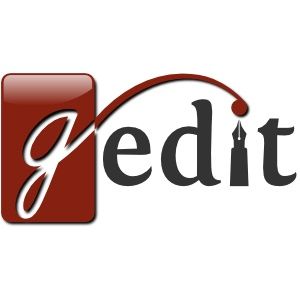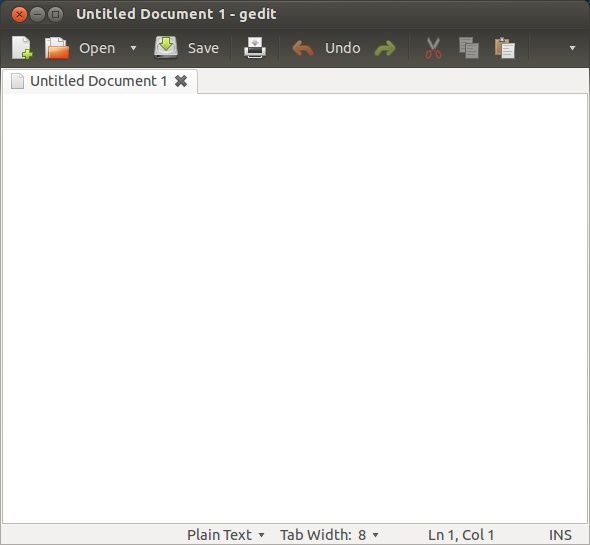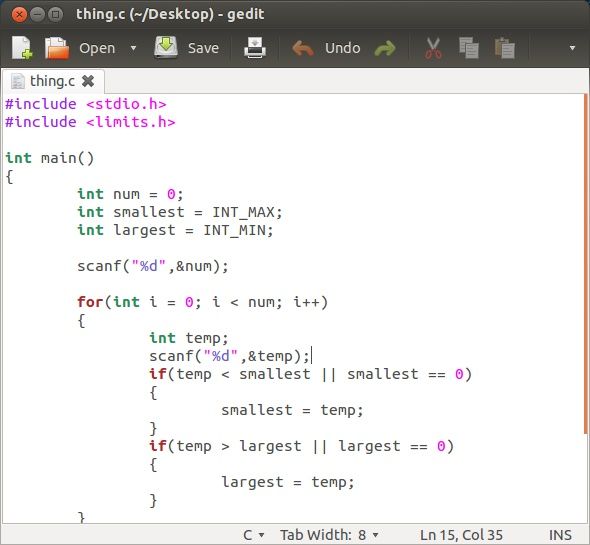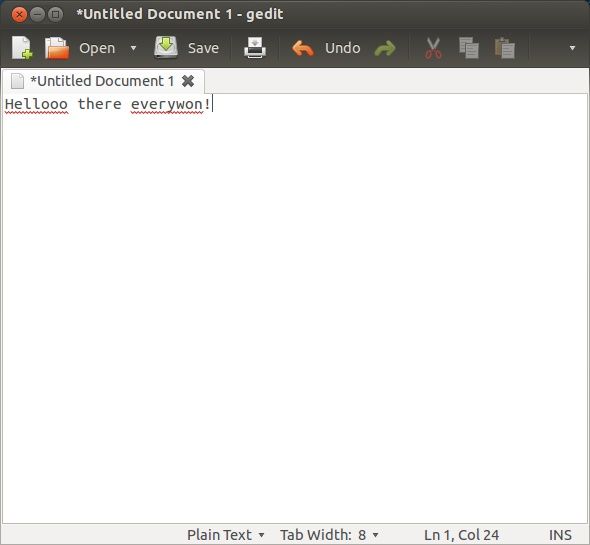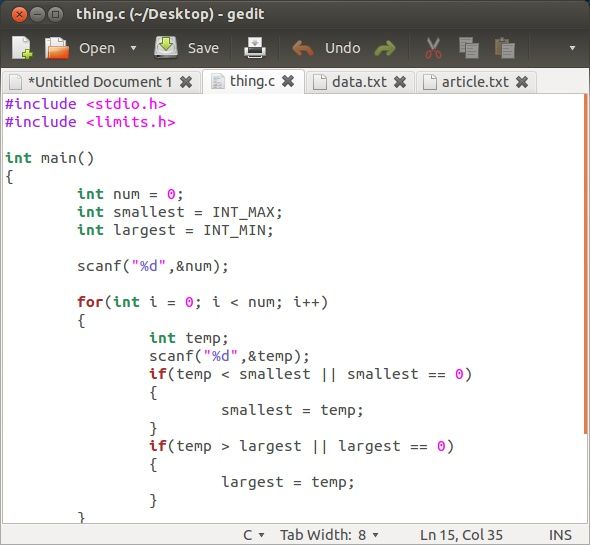When you think of plain text editors, the first thing that may pop into your head is Windows' Notepad application. It does exactly what its job description states - plain features for a plain text editor. But this is a common misconception about what plain text editors should be about.
Those who need more out of them deserve something better (because there's plenty of people who use plain text editors for more than just jotting down extremely simple notes), and that "something better" is called gedit.
About gedit
"Something better" is an understatement, actually. gedit is among one of the prime applications for plain text editing, standing among the elite free text editors such as Notepad++. Its features go so much farther than you might expect, and it feels much more like home than the bare-bones Notepad. Seriously, just look at the screenshot and tell me that, with Ubuntu's warmer colors, it doesn't look more comfortable and inviting.
The Basics
Of course, gedit comes with some common plain text editing features that you'd absolutely expect to see. These include search and replace, go to line, full screen, document statistics, undo and redo, and the ability to save files in practically any format, including simple extension-less text files, .txt files, .c files, .java files, etc.
Syntax Highlighting
Something that you might not expect to see in a plain text editor is syntax highlighting. This isn't needed for those who simply use it to quickly jot something down, but the syntax highlighting does enable programmers as well as many others to use gedit for more complex tasks. Virtually every programming language in existence has syntax highlighting in gedit, as well as a couple of other non-programming text files.
There are even a few scientific formats which have highlighting support. In other words, I haven't seen any other editor support all of these formats.
Spell Check
I'm sure you've noticed by now that you're not using Word or a similar program, as you can't choose your fancy font and font size, but that doesn't mean that plain text can't have a spell checker! gedit sports a very nice spell checker, highlighting those words which you got wrong by using Linux's spell-check libraries.
Tabs
If you consider yourself to be a power user when it comes to plain text editors, gedit has you covered. Just like your favorite browser, it allows you to open up multiple tabs instead of windows to keep everything nice and clean. I hate nothing more than having multiple windows open of a browser, so being able to consolidate editor windows is a huge plus in my eyes.
Available for Windows
For those of you who are running Windows, you're in luck! gedit as well as its GTK dependencies have been ported over to Windows, so now you can use it as well! I do want to point out, however, that the Windows port is far less supported, so it's very likely that you'll be running an older version of gedit. In my experience, it often runs rather slowly on Windows rather than the snappy response in Linux, so that may be something you'll want to be aware of.
Installation
In case you don't already have gedit installed (Gnome-based desktops already should, others shouldn't), then it's easily installable via your respective package managers as "gedit". Ubuntu users can run the command sudo apt-get install gedit to install it, while Fedora users can use sudo yum install gedit.
Conclusion
Overall, gedit is probably my favorite text editor, hands down. There are, of course, other programs for specific purposes such as programming that I love very much - such as Geany - but as a general-purpose editor, this absolutely gets my recommendation. If you haven't tried it yet, whether it already be installed on your system or not, it's about time that you do.
What's your favorite free text editor? What do you like about it the most? Let us know in the comments!

